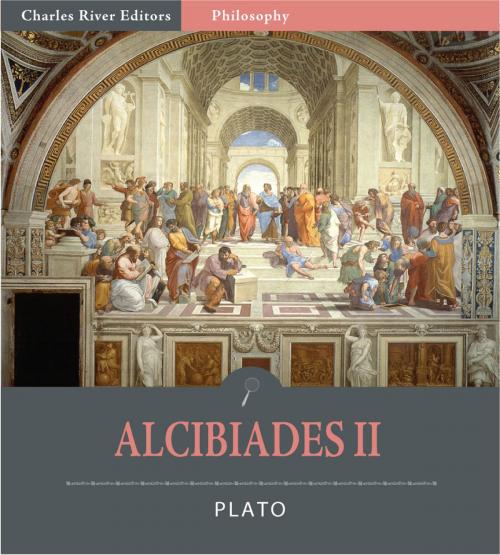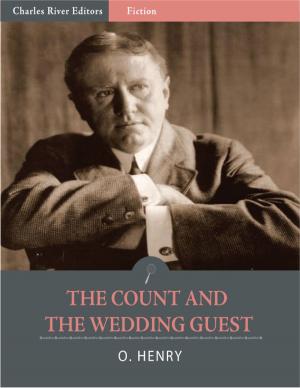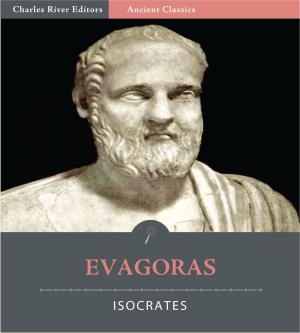Alcibiades II (Illustrated Edition)
Nonfiction, Religion & Spirituality, Philosophy, History, Criticism, & Surveys, Ancient, Ancient History, Greece| Author: | Plato | ISBN: | 9781475304701 |
| Publisher: | Charles River Editors | Publication: | April 1, 2012 |
| Imprint: | Language: | English |
| Author: | Plato |
| ISBN: | 9781475304701 |
| Publisher: | Charles River Editors |
| Publication: | April 1, 2012 |
| Imprint: | |
| Language: | English |
In 427 B.C., the Ancient Greek city-state of Athens was flourishing. Approximately 80 years earlier, the Athenians had formed the first self-representative democracy in history, the Peloponnesian War against Sparta had only just started, and Socrates was only beginning to lay the foundation of what would become Western philosophy. That year Plato was born to a wealthy family: with an uncle who was close friends with Socrates, Plato was seemingly destined to become a philosopher. By the end of his life, Plato had indeed become the foremost philosopher of his time, and perhaps the most famous philosopher in Western history. None of Socrates works survived antiquity, so most of what is known about him came from the writings of his followers, most notably Plato. What is known about Socrates is that he seemed to make a career out of philosophy, and Plato was intent on following in his footsteps. Yet for all of the influence of Socrates life on Plato, it was Socrates death around 399 B.C. that truly shaped him. Plato was so embittered by Socrates trial in Athens that he completely soured on Athenian democracy, and he began to travel around the Mediterranean, studying topics like mathematics, honing his approach to philosophical thinking, and continuing to refine his philosophical beliefs. About a decade later, Plato returned to Athens and founded his famous Platonic Academy around 387 B.C., which he oversaw for 40 years until his death. One of Platos philosophical beliefs was that writing down teachings was less valuable than passing them down orally, and several of Platos writings are responses to previous writings of his, so Platos personally held beliefs are hard to discern. However, Plato educated several subsequent philosophers, chief among them Aristotle, and his writings eventually formed the backbone of Western philosophy. There is controversy among scholars as to the authorship of the dialogues entitled Alcibiades I and Alcibiades II. However, most accept that Alcibiades I belongs in the Plato canon, but that Alcibiades II was written by an imitator. Alcibiades is described as a very young man, supremely self-confidant and very ambitious. Socrates questions whether the young man has the knowledge or the political wherewithal to persuade the Athenian populace on matters of war and peace, justice and injustice, and other topics. This edition of Platos Alcibiades II is specially formatted with over a dozen pictures of Plato and other famous Ancient Greek philosophers. It also includes a Table of Contents for easier navigation.
In 427 B.C., the Ancient Greek city-state of Athens was flourishing. Approximately 80 years earlier, the Athenians had formed the first self-representative democracy in history, the Peloponnesian War against Sparta had only just started, and Socrates was only beginning to lay the foundation of what would become Western philosophy. That year Plato was born to a wealthy family: with an uncle who was close friends with Socrates, Plato was seemingly destined to become a philosopher. By the end of his life, Plato had indeed become the foremost philosopher of his time, and perhaps the most famous philosopher in Western history. None of Socrates works survived antiquity, so most of what is known about him came from the writings of his followers, most notably Plato. What is known about Socrates is that he seemed to make a career out of philosophy, and Plato was intent on following in his footsteps. Yet for all of the influence of Socrates life on Plato, it was Socrates death around 399 B.C. that truly shaped him. Plato was so embittered by Socrates trial in Athens that he completely soured on Athenian democracy, and he began to travel around the Mediterranean, studying topics like mathematics, honing his approach to philosophical thinking, and continuing to refine his philosophical beliefs. About a decade later, Plato returned to Athens and founded his famous Platonic Academy around 387 B.C., which he oversaw for 40 years until his death. One of Platos philosophical beliefs was that writing down teachings was less valuable than passing them down orally, and several of Platos writings are responses to previous writings of his, so Platos personally held beliefs are hard to discern. However, Plato educated several subsequent philosophers, chief among them Aristotle, and his writings eventually formed the backbone of Western philosophy. There is controversy among scholars as to the authorship of the dialogues entitled Alcibiades I and Alcibiades II. However, most accept that Alcibiades I belongs in the Plato canon, but that Alcibiades II was written by an imitator. Alcibiades is described as a very young man, supremely self-confidant and very ambitious. Socrates questions whether the young man has the knowledge or the political wherewithal to persuade the Athenian populace on matters of war and peace, justice and injustice, and other topics. This edition of Platos Alcibiades II is specially formatted with over a dozen pictures of Plato and other famous Ancient Greek philosophers. It also includes a Table of Contents for easier navigation.















